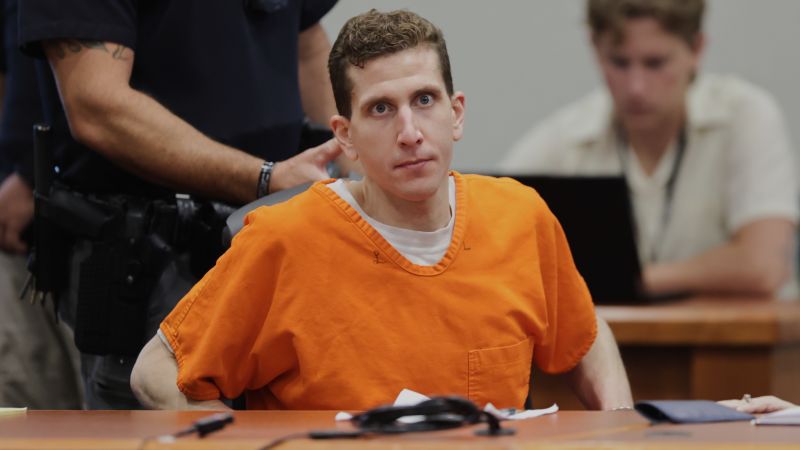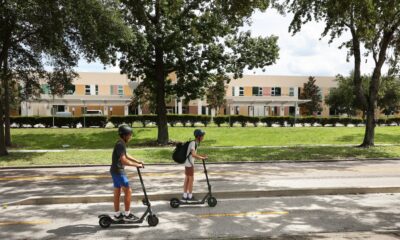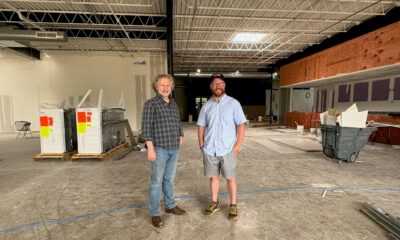Science
Bryan Kohberger Moved to Solitary Confinement in Idaho Prison

Bryan Kohberger, who pleaded guilty to the 2022 murders of four students from the University of Idaho, has been transferred to solitary confinement, according to a report by CNN affiliate KTVB. The Idaho Department of Corrections (IDOC) confirmed that Kohberger is now housed in long-term restrictive housing at J Block within the Idaho Maximum Security Institution, the state’s only maximum-security prison, located approximately nine miles south of Boise.
The transfer came more than a week after Kohberger was sentenced to life in prison without the possibility of parole. He chose not to speak during his sentencing hearing in late July. The families of the victims have expressed that they remain uncertain about his motives for the crimes.
Conditions in Solitary Confinement
J Block is designed to accommodate up to 128 individuals, including those in protective custody and on death row. Inmates in long-term restrictive housing, such as Kohberger, are kept in single-person cells and are transported in restraints. They are allowed one hour of outdoor recreation daily and can shower every other day, as reported by IDOC.
The Idaho Maximum Security Institution has faced scrutiny over its treatment of inmates in solitary confinement. In a notable incident last year, 90 inmates organized a six-day hunger strike to protest delays in medical care, prolonged isolation, and the conditions of the “cages” used for recreational time. Reports from the Idaho Statesman illustrated these cages as large, chain-link metal boxes that were often unsanitary, with complaints about the facility’s overall cleanliness and maintenance.
In response to these allegations, the IDOC stated that the recreation enclosures are regularly cleaned and that inmates can request cleaning of their cell ventilation systems. Following the hunger strike, the department announced efforts to enhance vocational, educational, and recreational opportunities for inmates.
Changes to Solitary Confinement Policies
The strict policies surrounding solitary confinement at the Idaho Maximum Security Institution have raised concerns among advocates for inmates’ rights. Former IDOC director Kevin Kempf noted that inmates in solitary could be confined for up to 23 hours a day with minimal human interaction, receiving meals in their cells and permitted showers only three times a week. To address these issues, the department has introduced a step-down program aimed at gradually transitioning inmates from solitary confinement to environments that allow for increased social interaction.
In a statement to CNN, the IDOC clarified that long-term restrictive housing is not intended as a disciplinary measure but rather as a housing assignment designed to manage specific behaviors. The department emphasized its commitment to safety for all individuals within its facilities.
The ongoing situation surrounding Kohberger and the conditions of confinement at the Idaho Maximum Security Institution highlight significant issues within the correctional system and raise questions about inmate treatment in high-security environments.
-

 Lifestyle2 weeks ago
Lifestyle2 weeks agoBelton Family Reunites After Daughter Survives Hill Country Floods
-

 Education3 weeks ago
Education3 weeks agoWinter Park School’s Grade Drops to C, Parents Express Concerns
-

 Technology2 weeks ago
Technology2 weeks agoDiscover the Top 10 Calorie Counting Apps of 2025
-

 Technology3 weeks ago
Technology3 weeks agoByteDance Ventures into Mixed Reality with New Headset Development
-

 Technology3 weeks ago
Technology3 weeks agoMeta Initiates $60B AI Data Center Expansion, Starting in Ohio
-

 Technology5 days ago
Technology5 days agoHarmonic Launches AI Chatbot App to Transform Mathematical Reasoning
-

 Lifestyle3 weeks ago
Lifestyle3 weeks agoNew Restaurants Transform Minneapolis Dining Scene with Music and Flavor
-

 Technology2 weeks ago
Technology2 weeks agoMathieu van der Poel Withdraws from Tour de France Due to Pneumonia
-

 Technology2 weeks ago
Technology2 weeks agoGlobal Market for Air Quality Technologies to Hit $419 Billion by 2033
-

 Technology2 weeks ago
Technology2 weeks agoRecovering a Suspended TikTok Account: A Step-by-Step Guide
-

 Health3 weeks ago
Health3 weeks agoSudden Vision Loss: Warning Signs of Stroke and Dietary Solutions
-

 Technology3 weeks ago
Technology3 weeks agoTrump Faces Internal Struggles Over Epstein Files Handling





















